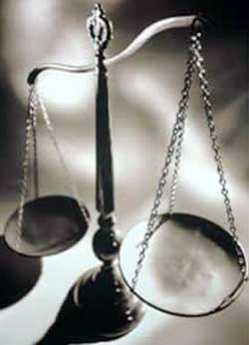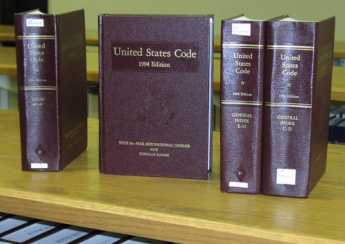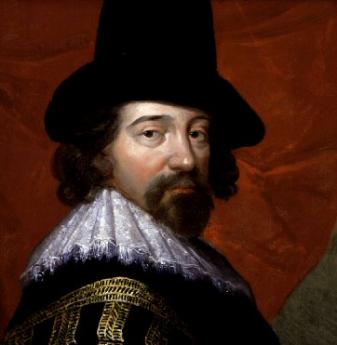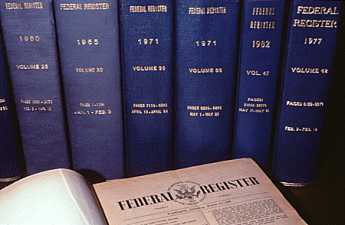Related Topics
Causes of the American Revolution
Britain and its colonies had outgrown Eighteenth Century techniques of governance. Unfortunately, both England and America lacked the sophistication to make drastic changes smoothly.
Dislocations: Financial and Fundamental
The crash of 2007 was more than a bank panic. Thirty years of excessive borrowing had reached a point where something was certain to topple it. Alan Greenspan deplored "irrational exuberance" in 1996, but only in 2007 did everybody try to get out the door at the same time. The crash announced the switch to deleveraging, it did not cause it.
Government Organization
Government Organization
Shaping the Constitution in Philadelphia
After Independence, the weakness of the Federal government dismayed a band of ardent patriots, so under Washington's leadership a stronger Constitution was written. Almost immediately, comrades discovered they had wanted the same thing for different reasons, so during the formative period they struggled to reshape future directions . Moving the Capitol from Philadelphia to the Potomac proved curiously central to all this.
Philadelphia Legal
Legal Philadelphia is full of crooks, but some lawyers are saints.
George Washington in Philadelphia
Philadelphia remains slightly miffed that Washington was so enthusiastic about moving the nation's capital next to his home on the Potomac. The fact remains that the era of Washington's eminence was Philadelphia's era; for thirty years Washington and Philadelphia dominated affairs.
..Constitution and Court
Forget all those lawyer jokes you hear. The American legal profession can rightly be proud of the Federal Court System, an achievement of the whole profession. America may be legalistic and overlawyered, but that reflects the rule of law dominated by lawyers. Curiously, the leader of this creation, John Marshall, was not so much a legal theoretician as a relentless Federalist lawyer, determined to reshape the legal profession to be worthy of power.
Reconsidering All Our Laws

|
| Common Law |
A KING who conquers a new country theoretically gains the chance to revise all its laws. However, thousands of years of experience demonstrate that those who are good at wielding the sword seldom have much interest in, or aptitude for, devising a legal code. Napoleon seems to have been an exception, and Alexander the Great was tutored by Aristotle, but most conquerers have been illiterate in the law. Therefore, earlier conquerors merely extended their native laws into additional territory or else left the whole business to a permanent priesthood of judges. In this way, an independent judiciary could survive unless, like Thomas a Becket or Thomas More, it grew stubborn about thwarting the wishes of the King. The concept of citizen rights more or less defined feasible limits to what the King was allowed to do. British law went still further, distinguishing between rights of the people and rights of the sovereign. It identified those few things even a King was not allowed to do, as well as those many things he alone must be able to do in order to govern. The latter were collectively called the King's Prerogative. Today, we would call it a job description.

|
| U.S. Codes |
Along those lines, the English Civil War had been fought, briefly transferring the power of Prerogative to Parliament, and incidentally clarifying some disadvantages of doing so. Americans, after fighting an eight-year Revolutionary War to be rid of a particular king, had developed a sentiment for eliminating all kings entirely. However, the memory of the English Civil War and subsequent abuses by the Cromwell Parliament restrained that impulse. The alternative idea grew of transferring sovereignty to the people, to be translated into action by their elected representatives in the Legislative branch. Although such sovereignty would be unlimited, the intermediate steps taken by the Legislature could be deliberately slowed down, and particularly worrisome actions might be tangled up in complicated steps of legal process by a vocal minority. Such a complicated system required an umpire, which Chief Justice John Marshall eventually positioned the Supreme Court to be. Conducting elections every two years was a simple way to allow the people to restrain its agents from the misbehavior of a more general sort. Since George Washington was confidently expected to be the first President, it was left to him to devise protections against presidential abuse, since he had notoriously and repeatedly expressed his intense dislike of kings. In modern times this system of checks and balances has only been severely tested once, in 1937. Immediately after winning a landslide re-election in 1936, Franklin Roosevelt nevertheless was slapped down hard by public outcry forcing Congress to thwart his Supreme Court-packing scheme.

|
| Sir Francis Bacon |
Such subtle, complicated ideas cannot be implemented by writing 6000 words on a piece of paper, and they certainly cannot withstand two hundred fifty years of subsequent nit-picking by dissenters, no matter how carefully crafted the 6000 words may have been. The complexity of the political system it describes would long ago have fallen apart without a million little accommodations and revisions, just as every other nation's constitution has done during that same period of time. And that fine-tuning process was made possible by starting with a more or less blank slate, with thousands of lawyers and legislators debating every particle of common law for more than a century. In 1787 it was decided to adopt English common law as a default position, and to invite a host of legislative bodies to debate and replace any part of it with a "statute". It was a laborious process. Measured by pages of law books, the volume of statutes only grew to equal the volume of common law by the time of the Civil War. The English common law was certainly a good place to start, having been created by Sir Francis Bacon two hundred years earlier as the legal equivalent of the Scientific Method; based on real, adversarial contested case decisions, a hypothesis was created, then tested, revised, and tested again. By actual count, one state legislature only enacted three statutes in the year before the Constitution was ratified; all its other activity was concerned with adjudicating disputes within the boundaries of the existing common law. But when the Constitution suddenly rearranged the balances of power in 1787, almost every sentence of common law had to be regarded as potentially requiring modification to reflect the new Constitutional rearrangements. During the first half century there existed great enthusiasm for almost all of the new Constitution except those parts which affected slavery, the fine-tuning was almost universally intended to strengthen it or repair some oversight. If it failed in some way, adversaries were quick to point out the flaws. In short, every lawyer in the nation was involved to some degree for a century in the process of re-writing the English common law for American purposes, in American circumstances, for the grander purpose of strengthening the American commonwealth.

|
| Federal Registry |
And everyone knows what happened next. The state legislatures who considered it normal to pass fewer than a dozen laws in a year started passing fifteen hundred in a year and kept it up for many years. Today, almost every state legislature considers more than a thousand bills and passes two or three hundred. Since the colonial legislatures passed few laws and spent most of its time adjudicating disputes about existing law, the character of the law changed as it gradually gave up adjudicating, stopped being like a court. The tendency of early law was to state principles to guide the judges. In recent times, our over-lawyered system specifies all imaginable conditions and exceptions in excruciating detail, so that our laws tend less and less to speak of "reasonable amounts" and more and more to define drunken driving, for example, in milligrams per deciliter of the defendant's blood. We have better measuring devices, so we measure. But who can deny that a legislature accustomed to making judgments itself, will more confidently rely upon the good judgment of courts, than a legislature which spends its time going to committee meetings to consider the testimony of experts, often never visiting a courtroom?
Our lawyers, who once enlisted the efforts of the entire profession for a century into refining the English common law into the American statutory law, are to be encouraged to extend equal effort into the process of turning off the faucet. Or possibly, having done such a good job at this assignment, seek another line of work?
Originally published: Monday, August 29, 2011; most-recently modified: Monday, June 03, 2019